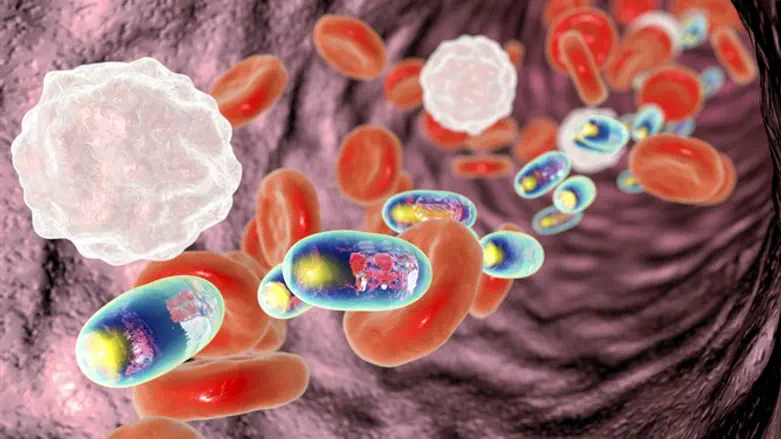
The U.S. National Institute of Allergy and Infectious Diseases (NIAID) convened several meetings last week to discuss COVID-19 shot allergic reactions with representatives of Pfizer and Moderna, independent scientists and physicians, and the Food and Drug Administration (FDA), reports ScienceMag.
The magazine, whose COVID-19 reporting is supported by the Pulitzer Center and the Heising-Simons Foundation, said severe allergy-like reactions in at least eight people who received the COVID-19 vaccine produced by Pfizer and BioNTech over the past 2 weeks may be due to a compound in the packaging of the messenger RNA (mRNA) that forms the vaccine’s main ingredient, scientists say. A similar mRNA vaccine developed by Moderna, which was authorized for emergency use in the United States on Friday, also contains the compound, polyethylene glycol (PEG).
"PEG has never been used before in an approved vaccine, but it is found in many drugs that have occasionally triggered anaphylaxis—a potentially life-threatening reaction that can cause rashes, a plummeting blood pressure, shortness of breath, and a fast heartbeat. Some allergists and immunologists believe a small number of people previously exposed to PEG may have high levels of antibodies against PEG, putting them at risk of an anaphylactic reaction to the vaccine," the paper noted.
NIAID is also setting up a study in collaboration with FDA to analyze the response to the vaccine in those with high levels of anti-PEG antibodies or who have experienced severe allergic responses to drugs or vaccines before. NIAID Branch Chief of Allergy, Asthma, and Airway Biology Alkis Togias said: “Until we know there is truly a PEG story, we need to be very careful in talking about that as a done deal.”
Pfizer, too, says it is “actively seeking follow-up.” A statement emailed to Science noted it already recommends that “appropriate medical treatment and supervision should always be readily available” in case a vaccinee develops anaphylaxis.
Pfizer’s and Moderna’s clinical trials of the vaccines, which involved tens of thousands of people, did not find serious adverse events caused by the vaccine. But both studies excluded people with a history of allergies to components of the COVID-19 vaccines; Pfizer also excluded those who previously had a severe adverse reaction from any vaccine. People with previous allergic reactions to food or drugs were not excluded, but may have been underrepresented, says ScienceMag.
Meanwhile, an Israeli law firm has sent a letter Health Ministry Special Events coordinator Firas Hayek with a demand to reveal all vaccine injuries and damages before Israel can pass legislation regarding mandatory vaccination.
The Law Firm of Sachs, David, Price, and Hegdish wrote: "Testimonies from within society have accumulated of severe incidents that necessitated emergency medical care for those who vaccinated, evacuation to the emergency room, hospital stay, or death within a close time frame from the vaccination.
"In light of the Health Ministry's intention to advance 'legislation to encourage vaccination,' that would allow entrance to a place of work with the public only to those who vaccinated, recovered, or who produce a recent negative test, and opening venues to the vaccinated starting Sunday, February 21st, 2021, we request at earliest opportunity to receive the number of reports received by the Ministry of adverse events such as those mentioned."
According to the federal Vaccine Adverse Event Reporting System (VAERS) [1], there were 21 deaths this flu season after 180+ million flu vaccines, a rate of 1 death per 9,000,000 vaccinations.
The COVID-19 vaccine, however, according to VAERS, shows 1 death reported per 35,000 shots or 10,000 completed vaccinations (so far), a 300-900 greater likelihood. The Center for Disease Control (CDC) maintains there is "no link" between the vaccine and the deaths.
The State of Israel has, very recently, established an online form for reporting adverse events [2]. However, the system does not include transparent reporting to the public as does the U.S. Vaccine Adverse Event Reporting System, where the public can see any of the reports of deaths, whether the CDC has determined it was vaccine-related or not.
Instead, the information reported by the public enters a non-transparent interface where the Health Ministry decides what to report and what not to report to the public. Also, the Health Ministry and government do not publicize the existence of the online form, leaving many unaware that they can report.
[1] https://wonder.cdc.gov/vaers.html
[2] https://www.gov.il/he/service/covid-vaccination-side-effects-report
